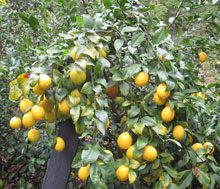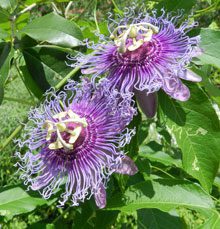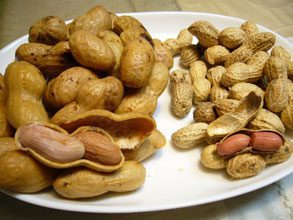 There’s a great movie called “The Botany of Desire.” Pretty catchy title for a documentary about plants. Originally produced by PBS, you can usually find it on Netflix, Amazon or YouTube. It’s the story of how human intervention has affected four different plants, and how those plants have affected human behavior.
There’s a great movie called “The Botany of Desire.” Pretty catchy title for a documentary about plants. Originally produced by PBS, you can usually find it on Netflix, Amazon or YouTube. It’s the story of how human intervention has affected four different plants, and how those plants have affected human behavior.
It’s a worthwhile watch for a lot of reasons, but what really resonated with me was learning that plants are a lot smarter than we ever give them credit for being.
For instance, did you know that plants have memories? They do. Plant people have known for centuries that taking cuttings from mature trees and grafting them onto young saplings produces fruiting plants much quicker than growing them from seeds. Why is that, do you think? It’s because the cutting, or grafting scion, remembers how old it is and begins its new growing cycle with that in mind.
All commercially grown citrus trees are grafted. A scion (cutting) from a mature tree with fruit exhibiting desirable taste and productivity, is grafted onto a one or two year old seedling of a cultivar which is sturdier and hardier, but doesn’t produce tasty fruit. But the scion remembers who he is and more importantly, how old he is, and begins producing the exact same fruit as his mother tree within a year or two; years earlier than if started from seed. And besides, the seeds from the mother tree are like Forrest Gump’s box of chocolates. You never know what you’re going to get, and it will take up to seven years to find out.
Plant roots are pretty smart, too. Fertilize only one side of a plant, and its roots will migrate over to that side. Plants communicate with each other through releasing airborne compounds or through networks in their rhizosphere (the soil around the plant’s roots). Trees even share nutrients through mycorrhiza in the soil.
Plants can sense the world around them. Stand still near a passion flower vine, and you’re likely to find a tendril from the vine, looking for a support structure, curled around your arm. In this time-lapse video, you can actually observe the tendrils wafting around, searching for a place to anchor themselves.
https://www.youtube.com/watch?v=MPql1VHbYl4
Studies have determined that plants can even “learn” and retain that learning for up to 40 days – somewhat longer than the average teenager.
 We know that plants want to live. They will do whatever they can to survive. In periods of drought, trees will drop their leaves so that their remaining energy can be devoted to survival rather than growth. It has been proven that trees sleep. Some even close their leaves and entire trees can visibly droop at night.
We know that plants want to live. They will do whatever they can to survive. In periods of drought, trees will drop their leaves so that their remaining energy can be devoted to survival rather than growth. It has been proven that trees sleep. Some even close their leaves and entire trees can visibly droop at night.
Without ears, they respond to sound. Without eyes, they seek out the sun and find supports to grow upon. Without olfactory nerves, they sense airborne odors. Without vocal chords, they make sounds. Without a nervous system, they feel when predators are attacking and relay warnings to other plants to deploy their defense systems.
Some plants are territorial, releasing toxins into their rhizosphere which kill or discourage other plants from invading their space. Sound familiar? We are more alike than we think.
We have learned we can anesthetize plants with chloroform. An article in The New York Times argues that in order for plants to lose consciousness, they must have possessed consciousness. At least in some form.
And so the debate rages on. Are plants intelligent? Do plants, like mammals, have an intelligence or social hierarchy? Do they have consciousness?
I’m not sure that I want to know if plants have consciousness. I already have issues about consuming animal flesh, preferring the ostrich with its head in the sand approach. I am carnivorous, but I don’t like to think about it. Having to worry about lettuce would surely send me over the edge.






